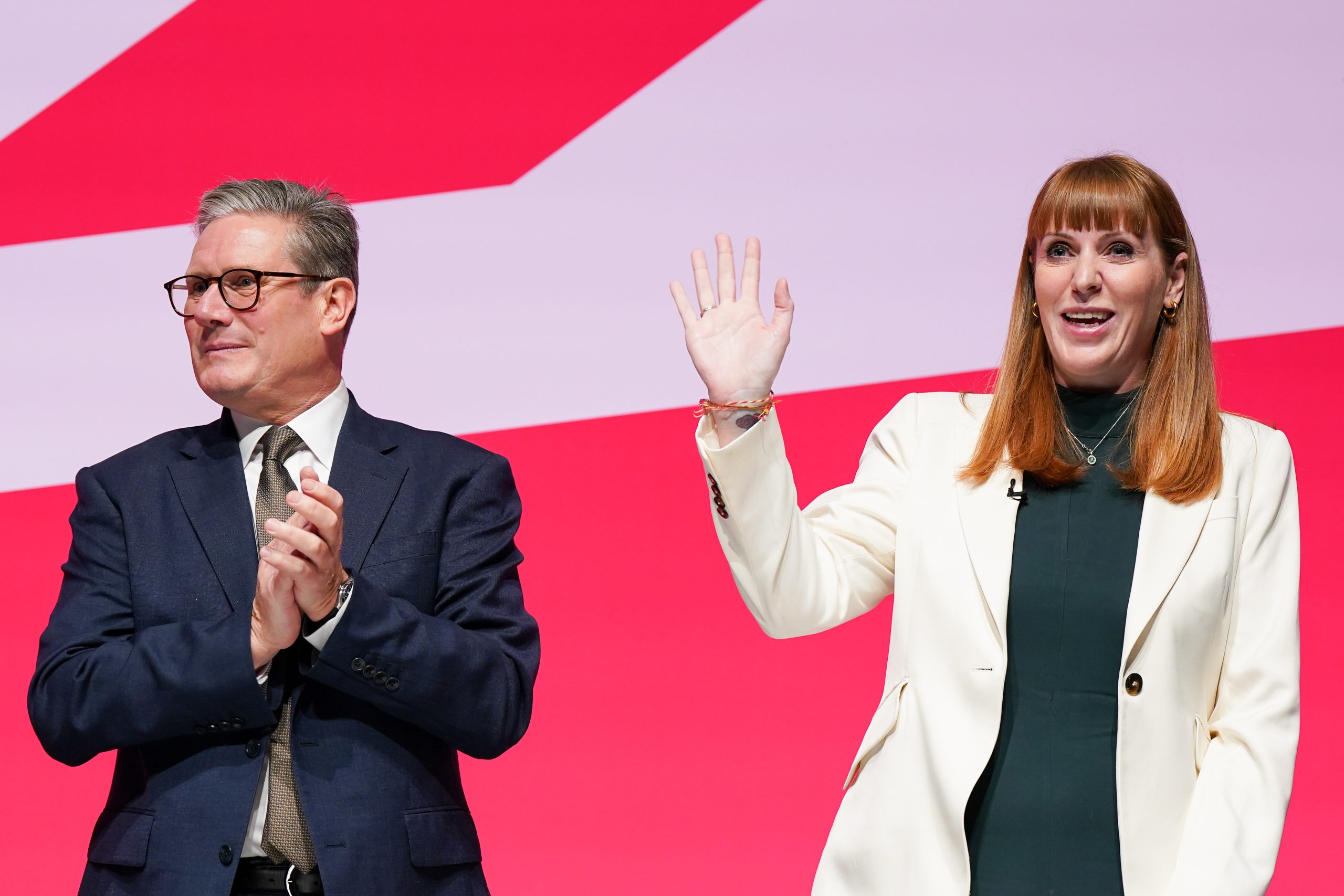It’s purely a coincidence. Nothing to see here, Number 10 insisted. Perish the thought that the reshuffle marked an entrenchment of the right and a further widening of the gulf between Labour and government. Deputy leadership contest? Bit of a nuisance really, and anyway, Keir’s already bypassed that and appointed a deputy PM. Job done, move on.
Not so fast. The shape of the ministerial appointments and sackings in this week’s cabinet reshuffle, together with leadership attempts to eclipse any significance from the election of a deputy leader, adds up to another marked loosening of the ties between party and power. Another tilt in the balance between the interests of workers and business.
Uncomfortably for Morgan McSweeney and his fellow Number 10 control freaks, the real coincidence was the loss of the cabinet’s most working-class member, the deputy PM Angela Rayner, just days before the opening of the TUC Congress in Brighton.
In an outspoken and pointed attack on the Labour government, a TUC general secretary, Paul Novak, warned in Brighton that Starmer’s leadership risks opening the door to Number 10 for Nigel Farage, if it fails to convince working people — read working-class — that it is on their side. Labour’s election promise of ‘change’ has proved to be nothing more than an empty slogan.
Unite’s Sharon Graham went in harder: ‘What they need to be is to be Labour. If they don’t, then our members will make the decision, and they may decide not to be affiliated to Labour.’ In an echo of an earlier warning from Rayner that the government needed to change direction in the next twelve months, Graham said the government had no more than a year before her union reconsidered bankrolling the party to the tune of £1.4 million a year.
It’s now feared that the Employment Rights Bill, which comes back to the Commons for debate next week, will be watered down under pressure from big business and from within the cabinet. Its strongest champion was Rayner. Following the reshuffle, not a single minister backing its safe passage into law remains in office.
Number 10 and Starmer himself insist that the Bill will remain intact. But there is concern that key parts, such as the compressive outlawing of ‘fire and rehire’, will be diluted. The devil will be in the implementation, which is now dependent on secondary legislation controlled by ministers no longer sympathetic to its original aims.
Business, represented by the British Retail Consortium, the Federation of Small Businesses, and UKHospitality (which covers pubs), is urging ministers to accept watering-down amendments passed down from the Lords. Graham warns that the Bill could become a ‘paper tiger’. Labour MP Clive Lewis says: ‘What we have coming is a shadow of what’s needed. So to water that down yet further: well, it goes from being thin gruel to watery urine.’
Justin Madders, the sacked minister for employment rights who was key in getting the legislation through parliament, said: ‘Let’s hope these fears are unfounded because it would be really, really foolish to row back on key manifesto commitments that are popular with the public and would show what a positive difference a Labour government can make.’ The ministerial changes amount to a defenestration for defenders of the most symbolic Labour policy, as well as those perceived as not being not fully aligned with McSweeney’s master plan.
Here are just some of the indicative moves of that plan, as embodied in this week’s changing of the ministerial guard. Out go: Lucy Powell (Leader of the House) — no lefty but seen as too close to putative leadership rival Andy Burnham; Ian Murray (Scottish Secretary) — seen as being too close to Scottish leader Anas Sarwar, recently distanced from Number 10 — who is now replaced by arch loyalist Douglas Alexander; Ellie Reeves (relegated from party chair to solicitor general), now replaced by ultra-right-winger Anna Turley.
Other changes: Peter Kyle has been promoted to Business and Trade, replacing Jonathan Reynolds, who was seen to be garnering support among MPs as a future Starmer replacement; self-confessed ‘small-c conservative’ and Margaret Thatcher admirer Shabana Mahmood, now promoted to become a tougher version of protest-and-refugee hammer Yvette Cooper, who becomes Foreign Secretary; Liz Kendall, moved out of welfare for her failure to push through cuts, now demoted to science; Pat McFadden takes over from Kendall, to amalgamate welfare into the drive for growth, signalling more cuts; Blair McDougall, the right-wing former Better Together strategist against the SNP on devolution, is now appointed business and trade minister at Holyrood to secure closer links with business north of the border; Jason Stockwood, businessman and owner of Grimsby Town F.C., now made a peer in order to become minister for investment; Imogen Walker, wife of McSweeney and MP for Hamilton and Clyde Valley, who is promoted from the backbenches to the whips office.
The education secretary, Bridget Phillipson, has emerged as Number 10’s favoured candidate to stroll the required 80 MP nominations for the deputy leadership, a prohibitively high bar for the Left. There were mutterings that the Left should collectively boycott the leadership’s timetabled ‘stitch up’ of the deputy leadership election. But that would require an organised Left.
Starmer has repeatedly and proudly declared his government is ‘country first, party second’, as if there is some fundamental dichotomy in which the party is a threat to the nation. That perhaps is the root of all his leadership problems. What is left of the party membership following expulsions and exodus is fragmenting. The government is doggedly out of step with popular policies — nationalisation, wealth tax, social welfare, and climate change — and continuing to shape immigration policy to Nigel Farage’s tune. Starmer’s legacy is rapidly moving towards being the loss of the country and the destruction of his own adopted party.
